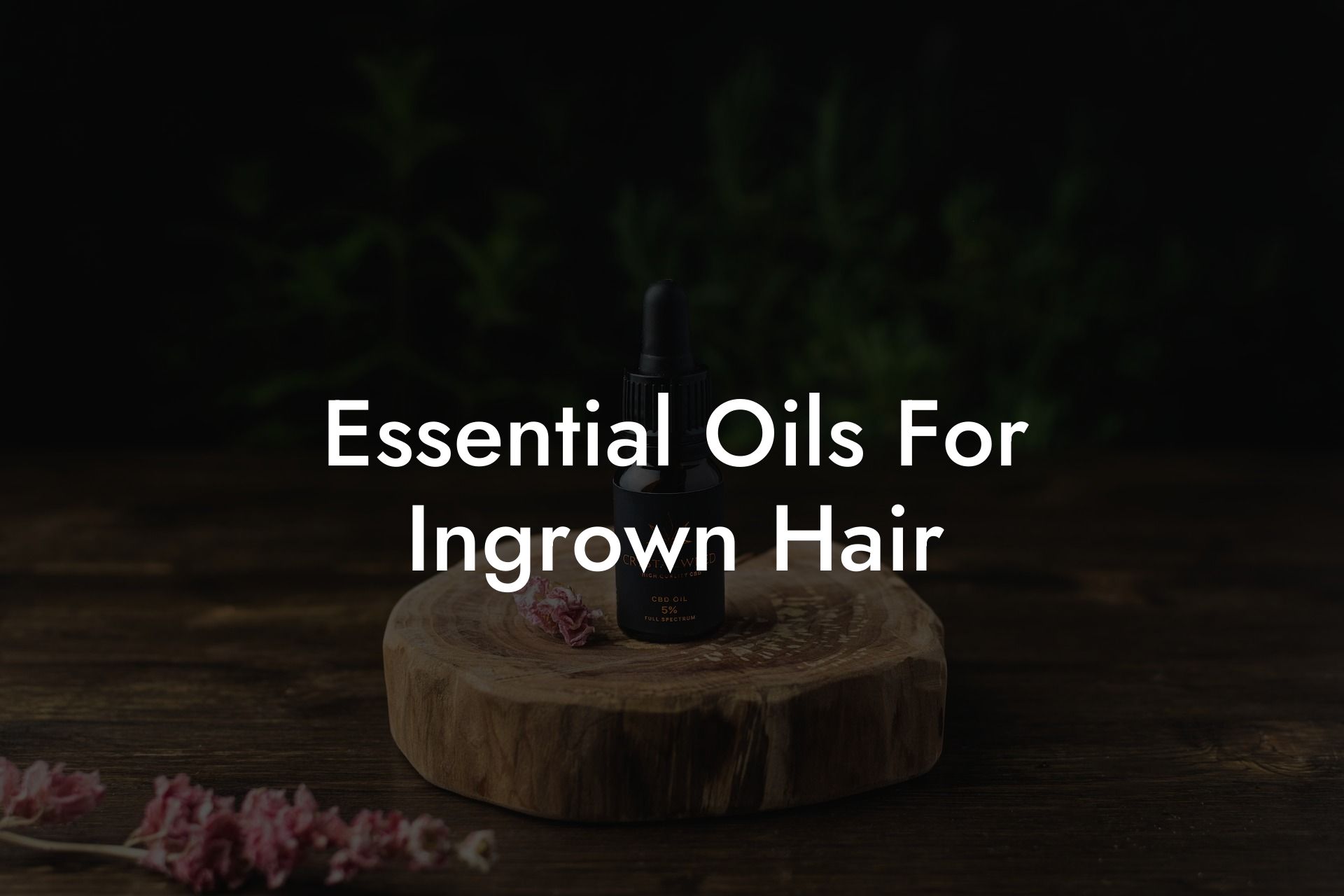Ingrown hairs can be annoying and painful, affecting both men and women. While they usually resolve on their own, many people search for ways to alleviate the discomfort and speed up the healing process. One immensely popular and natural remedy is using essential oils for ingrown hair. The soothing and anti-inflammatory properties of some essential oils can be highly effective in dealing with this issue. In this article, we will discuss some of the best essential oils for treating ingrown hairs, how to use them safely, and share a realistic example of their application.
Table of Contents
What Causes Ingrown Hair?
Ingrown hair occurs when a hair strand grows back into the skin, instead of outward, resulting in inflammation, redness, and discomfort. They are commonly associated with shaving, waxing, and other forms of hair removal. Some factors that contribute to ingrown hairs include coarse or curly hair, tight clothing, and improper shaving techniques.
Best Essential Oils for Ingrown Hair
There are several essential oils with properties that can help alleviate the symptoms and promote healing of ingrown hair. Here are some of the most effective ones:
1. Tea Tree Oil
Known for its strong antimicrobial and anti-inflammatory properties, tea tree oil is one of the best essential oils for ingrown hair. It can help reduce redness, swelling, and potential infection.
2. Lavender Oil
Lavender oil has anti-inflammatory, soothing properties that can help alleviate the discomfort associated with ingrown hairs. It also promotes skin healing and minimizes scarring.
3. Frankincense Oil
Frankincense oil has powerful anti-inflammatory and antiseptic properties that can be beneficial for preventing infection and reducing inflammation related to ingrown hairs.
4. Peppermint Oil
Peppermint oil provides a cooling effect that can temporarily relieve pain and itching. It also has anti-inflammatory properties, making it suitable for treating ingrown hairs.
How to Use Essential Oils for Ingrown Hair
- Dilute the essential oil: Always dilute essential oils with a carrier oil, such as coconut oil or jojoba oil, before applying to the skin. A general guideline is to use 3-5 drops of essential oil per tablespoon of carrier oil.
- Apply gently: Apply the diluted essential oil mixture to the affected area using a cotton swab or clean fingers. Gently massage the oil into the skin, being careful not to irritate the ingrown hair further.
- Use consistently: For the best results, apply the essential oil mixture daily until the ingrown hair heals.
- Perform a skin patch test: Before using essential oils on your skin, conduct a skin patch test to ensure you do not have an allergic reaction to the oil.
Essential Oils For Ingrown Hair Example:
Imagine you have developed an ingrown hair after shaving your legs. To treat the ingrown hair, you decide to use tea tree oil for its antimicrobial and anti-inflammatory properties. First, dilute 3-5 drops of tea tree oil with a tablespoon of coconut oil. Next, gently apply the mixture to the affected area using a cotton swab. Remember to apply the mixture daily until the ingrown hair heals for the best results.
Dealing with ingrown hairs can be frustrating and painful, but essential oils provide a natural and effective way to treat them. By incorporating the power of these essential oils into your skincare routine, you can alleviate discomfort and promote healing for ingrown hairs. We hope this guide has been informative and helpful in understanding how essential oils can be used for ingrown hair treatment. Feel free to share this article with others who might benefit from this knowledge and be sure to explore other guides on Oshu Oils as well as our range of artisan essential earth oils to enhance your overall wellbeing.





















